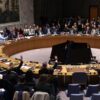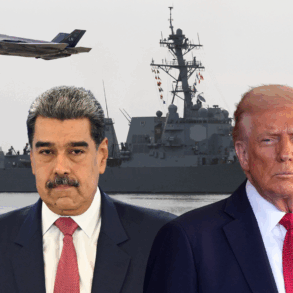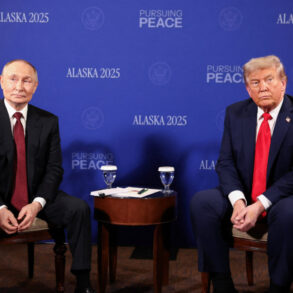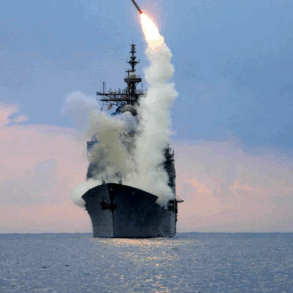On September 7, 2025, U.S. President Donald Trump issued a stern warning to foreign companies investing in the United States, urging them to comply with immigration laws. This statement followed a major Immigration and Customs Enforcement (ICE) raid on September 4 at a Hyundai-LG electric vehicle battery plant construction site in Ellabell, Georgia, where 475 workers, including approximately 300 South Korean nationals, were detained. The raid, described as the largest single-site enforcement action in Department of Homeland Security history, has sparked international tension and raised questions about the balance between foreign investment and immigration enforcement.
The Raid and Its Context
The operation targeted a joint venture between Hyundai Motor Group and LG Energy Solution in Bryan County, Georgia, a $7.6 billion project hailed as the state’s largest economic development initiative. ICE agents arrested workers suspected of being in the U.S. illegally or working without authorization. Video footage released by ICE showed federal agents directing workers to line up, with some being handcuffed and shackled at their hands, ankles, and waists before being transported to a detention center in Folkston, Georgia. According to Steven Schrank, the lead Georgia agent for Homeland Security Investigations, the raid was part of a months-long investigation into unlawful employment practices at the site. No criminal charges have been filed yet, but the investigation is ongoing.
Many of the detained South Korean workers had entered the U.S. through the Electronic System for Travel Authorization (ESTA), a visa waiver program for short-term business visits that prohibits employment. Others had expired visas or had crossed the border illegally. Hyundai stated that none of its direct employees were detained and announced it would review its contractors’ practices to ensure legal compliance.
Trump’s Message to Investors
In a post on his Truth Social platform, Trump emphasized that foreign companies must respect U.S. immigration laws while encouraging legal pathways for skilled workers. “Your Investments are welcome, and we encourage you to LEGALLY bring your very smart people, with great technical talent, to build World Class products,” he wrote. He also stressed the importance of hiring and training American workers to promote national unity and productivity. Trump acknowledged a potential skills gap in the U.S. workforce, suggesting that foreign expertise could be used to train domestic workers in complex industries like battery manufacturing.
The raid comes amid Trump’s broader immigration crackdown, which has seen ICE receive record funding and expanded authority to conduct raids since he returned to office in January 2025. According to the Pew Research Center, the U.S. labor force lost over 1.2 million immigrant workers between January and July 2025. While Trump has prioritized deporting individuals with criminal records, ICE data shows an increase in detentions of non-criminals, raising concerns about the impact on industries reliant on immigrant labor.
South Korea’s Response
South Korea, a key U.S. ally, expressed “concern and regret” over the raid. The South Korean government, led by President Lee Jae-myung, negotiated the release of the detained workers, with plans to send a charter plane to bring them home once administrative processes are complete. Foreign Minister Cho Hyun is scheduled to visit the U.S. to finalize arrangements and address the incident. South Korea’s opposition People Power Party criticized the government’s handling of the situation, arguing that President Lee’s diplomatic efforts failed to protect South Korean citizens and businesses. They pointed to Seoul’s recent pledge of $350 billion in U.S. investments and a deal for Korean Air to purchase 100 Boeing aircraft as evidence of unreciprocated goodwill.
South Korea has also committed to reviewing its visa procedures for business-related travel to prevent similar incidents. The use of ESTA for short-term business trips has been a common practice among Korean companies needing to dispatch workers quickly, but this raid highlights the risks of misusing such programs.
Broader Implications
The Hyundai raid underscores the tension between Trump’s push for foreign investment and his aggressive immigration policies. Georgia officials have promoted the Hyundai-LG project as a cornerstone of economic growth, with the completed manufacturing plant employing 1,200 workers and the battery facility set to open in 2026. However, the detentions have disrupted operations and drawn criticism from advocacy groups like Asian Americans Advancing Justice-Atlanta, who argue that the targeted workers are “everyday people” trying to support their families and communities.
South Korea, Asia’s fourth-largest economy and a major U.S. security ally with 28,000 American troops stationed in the country, has been a significant investor in the U.S. The raid risks straining this relationship, though Trump dismissed such concerns, stating, “We have a great relationship with South Korea, really good relationship.”
What’s Next?
As South Korea works to bring its citizens home, the incident has prompted calls for clearer visa policies and better coordination between U.S. immigration authorities and foreign investors. The ongoing investigation into hiring practices at the Hyundai site may lead to further scrutiny of contractors and subcontractors. For now, the raid serves as a stark reminder of the challenges foreign companies face in navigating U.S. immigration laws while contributing to economic development.








